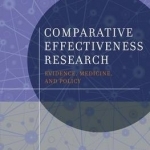Comparative Effectiveness Research: Evidence, Medicine, and Policy
BookThis item doesn’t have any media yet
2013 | Medical & Veterinary
For all its costs, flaws, and inequities, American health care is fundamentally rooted in a belief that treatment should be based on solid scientific research. To this end, between 2003 and 2010, three different federal laws were enacted, the most recent being the Affordable Care Act of 2010, that mandated new federal investments in a type of clinical research called comparative effectiveness research (CER) - research into what works best in medical care. Comparative Effectiveness Research: Evidence, Medicine, and Policy provides the first complete account of how - and why - the federal government decided to make CER an important feature of health reform. Despite earlier legislative uptake of policy proposals on CER, support for federal mandates took dramatic twists and turns, with eventual compromises forged amid failing bipartisan alliances, special interests, and mobilized public opinion. Based on exhaustive research and first-hand interviews, the authors examine where CER fits in the production of scientific evidence about the benefits and harms of treatments for human diseases and conditions.
Their work offers sobering confirmation that contemporary American medical care falls, not surprisingly, well short of the evidence-based ideal. Comparative Effectiveness Research demonstrates that dealing constructively with the vast uncertainties inherent to medical care requires policies to make the generation of high-quality evidence an inseparable part of routine health care.
Related Items:
| Published by | Oxford University Press Inc |
| Edition | Unknown |
| ISBN | 9780199968565 |
| Language | N/A |
Images And Data Courtesy Of: Oxford University Press Inc.
This content (including text, images, videos and other media) is published and used in accordance
with Fair Use.
